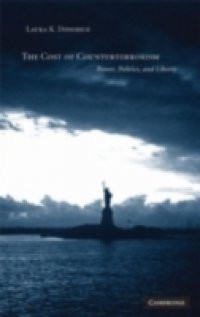In the aftermath of a terrorist attack political stakes are high: legislators fear being seen as lenient or indifferent and often grant the executive broader authorities without thorough debate. The judiciary's role, too, is restricted: constitutional structure and cultural norms narrow the courts' ability to check the executive at all but the margins. The dominant 'Security or Freedom' framework for evaluating counterterrorist law thus fails to capture an important characteristic: increased executive power that shifts the balance between branches of government. This book re-calculates the cost of counterterrorist law to the United Kingdom and the United States, arguing that the damage caused is significantly greater than first appears. Donohue warns that the proliferation of biological and nuclear materials, together with willingness on the part of extremists to sacrifice themselves, may drive each country to take increasingly drastic measures with a resultant shift in the basic structure of both states.

